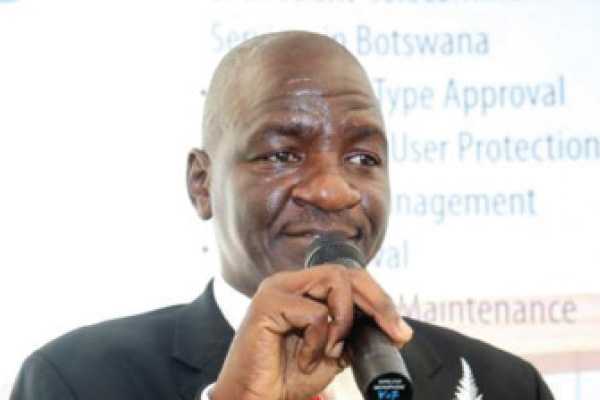BOCRA vs. MultiChoice: A big lesson for Regulators
The Judgement itself depicted BOCRA as an organisation which wants to apply a one-size fits all approach to all its regulated entities despite their diferent classificaion - a matter that stands to scare service providers from making it easy for consumers to receive services.
It equally helped to show that lots of institutions in the country do not challenge the Regulator in terms of seeking interpretations of the regulations and the Act. The institutions seem to believe that the Regulator is always right and what MultiChoice has done twice is in the best interest of the industry because it has provided an opportunity for the courts to interpret the regulations.This is a good thing not only for MultiChoice but also for the industry. An example is that about four companies were invited to come and receive their respective licences, but MultiChoice refused while Starset Botswana, Kwese and others simply received their licences with the same controversial clause, but never bothered to question BOCRA.
These companies were happy to be licensed but had not scrutinised the conditions of the licence whether they are practical or not.At the centre of the controversy of the marathon trial is Clause 13 of Section 90 of the licence which calls for MultiChoice Botswana to submit to BOCRA in writing a proposal, in respect to subscription fees it intends to apply. MultiChoice refused to take the licence arguing that they can only do so after Clause13 has been scrapped off as they are a Subscriptions Management Service (SMS) company and not a Broadcaster.
The case was a repeat of the first one that took place in 2005 under the National Broadcasting Board (NBB) where MultiChoice Botswana advanced the same arguments. During the trial that started in April 2013 it became evidently clear that all BOCRA did was to insert the failed clause on the new Act stating that they are including SMS companies but without going deeper into understanding the relationship between a subscriptions management company and a broadcaster.
This is despite that different industry players are classified or structured differently, but the ruling has now put to bed once and for all the fact that an SMS company is not a broadcaster. The ruling was made in 2005 by Justice Walia; it was upheld by the Court of Appeal.
The ruling states that if BOCRA’s intention is to regulate a foreign broadcaster in Botswana, then they will have to find a way of regulating that foreign broadcaster instead of finding an elusive way, as Justice Brand put it. This surely is a big challenge, but what is not disputable based on the judgement is that BOCRA cannot regulate broadcasters by proxy. More concern during the trial was that some of the companies such as Starset are completely independent of the broadcaster, they do not even have a relationship as they are simply agents but are given licences that allows them to pay tariffs .
High court
Justice Motswagole’s judgement was focusing on the relationship between SMS Company and the Broadcaster that they share a common relationship.The question that arose is what if the agent does not have a common shareholder with the broadcaster? The judgment answers this when it shows unequivocally that MultiChoice Botswana is simply an SMS provider and therefore the regulator cannot impose conditions on an SMS provider and at the same time on the broadcaster.
In terms of the high court judgement, companies such as CineMedia who are agents for Netflix were going to be regulated according to what Netflix is charging in Botswana through CineMedia. It is clear that BOCRA was derailed by the fact that MultiChoice Botswana and MultiChoice Africa are sister companies who share common shareholders.
Court of Appeal
In his order Justice Brand who appeared with Justice Walia and Justice Zibani Makhwade set aside the high court order and replaced it with an order reviewing and setting aside Clause 13 of MultiChoice Botswana’s licence, dismissed BOCRA’s counter application and directed them to pay costs of the High Court proceedings, including costs of the two counsels. Justice Brand stated that MultiChoice Botswana’s challenge to the validity of Clause 13 essentially rests on two grounds - firstly that, although BOCRA is authorised in terms of Section 32 (2) of the Act to issue a licence subject to such conditions as it deems necessary, those conditions must pertain to and be appropriate to the conduct and activities actually undertaken by the licensee itself.
MultiChoice Botswana’s licenced activities do not form part of the actual broadcasting activities which are taken by MultiChoice Africa, consequently, MultiChoice Botswana cannot be bound to conditions that pertain to actual broadcasting in which it performs. Justice Brand stated it somewhat differently, that BOCRA is not allowed to regulate the activities of MultiChoice Africa by proxy through imposing conditions on the license of MultiChoice Botswana as it was proposed to do. Brand further confirmed that MultiChoice Botswana has no control and input with regard to tariff rates charged to subscribers nor the content of the programming or composition of the packages or bouquets of channels presented to the subscribers, and therefore cannot comply with section 13, and that BOCRA is not allowed to impose conditions which are impossible in a licence.
Next step
Speaking to BG News on what their next step is BOCRA’s Communication Manager, Aaron Nyelesi said that their legal team was constrained to respond to media questions before the Board is briefed on what the case means and what could be the way forward.
“Despite this, the court has held that the licence is still valid without clause 13. Basically MultiChoice should be regulated as an SMS provider. The court views clause 13 as BOCRA’s way of imposing conditions on MultiChoice Africa through MultiChoice Botswana, which is in the opinion of the court, wrong. However, note that they advise against us being quoted before the executive structure has been briefed to advise on the way forward”.






